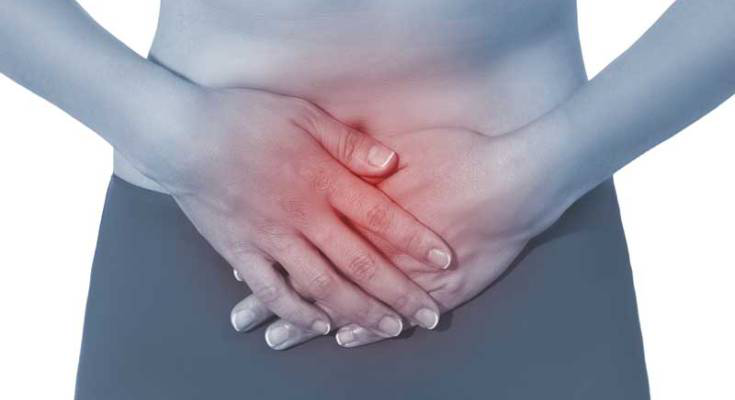A burning sensation while urinating is medically known as dysuria. Even though dysuria is only a symptom, it shouldn’t be ignored as various diseases can cause it. Infections, as well as, what you eat and what you drink play a role in burning urination. Burning urination can be something annoying, but sometimes really painful too. What is you have burning urination after drinking?

Why Do You Have Burning Urination After Drinking Alcohol?
How drinking alcohol leads to a burning urination is not known exactly. It is believed that alcohol consumption decreases the pH level of urine. As the urine becomes more acidic, the urethra is more prone to being irritated, resulting in a burning sensation while urinating, at the end.
Alcohol consumption also increases urination as it inhibits the ADH (antidiuretic hormone) hormone. Increased urination frequency can lead to a burning urination after drinking.
Interstitial cystitis is characterized by a chronic inflammation of the muscular wall of the bladder. It can lead to burning urination after drinking alcohol as well when alcohol is consumed, as it will just make this condition worse.
Other Common Causes of Burning Urination
Other causes of burning urination are:
- If you don’t drink enough fluid during the day you will end up being dehydrated. Dehydration will make the urine concentrated. In order to prevent dehydration, you should drink at least 8 glasses of water a day. You can drink other beverages too, but water is the most important. If it’s too hot or you are a person who sweats heavily than you should drink more water.
- Caffeine is a beverage with mild diuretic effects. This will lead to frequent urination, increasing the amount of urine produced as well. If you cut back on caffeine, your burning sensation while urinating can get better.
- Certain types of food can lead to a burning sensation while urinating. Acidic foods are known to make the urine more acidic, irritating the bladder and leading to dysuria. Acidic foods are oranges, lemons, grapefruits, tomatoes, etc. Other types of food and beverages which can irritate the bladder and lead to dysuria are coffee, tea, chocolate, artificial sweeteners, corn syrup, etc.
- Chronic medical conditions that can lead to a burning urination are diabetes or hypertension.
- Urinary tract conditions that can lead to a burning urination include prostatitis, hyperplasia prostate, kidney stones, urinary tract infections, bladder infections, urethritis, interstitial cystitis, sexually transmitted diseases, etc.
- Genital conditions that can lead to a burning urination include endometriosis, vaginitis, etc.
- Medications that can lead to a burning urination NSAID’s, chemotherapy agents, anticholinergic medications, etc.
- Irritants that can lead to a burning urination are chemicals such as bubble baths, soaps, douche, spermicides, or other products such as tampons, colored toilet paper, etc.
If increased water intake doesn’t resolve your problem, then you should seek professional medical help. A burning urination after drinking alcohol or not can be a symptom of something more serious such as hyperplasia prostate, prostate cancer, kidney stones, etc., which require early treatment.
How to Deal With Dysuria
If you have problems urinating and if you have recently started to have a burning sensation while urinating then you should seek professional medical help. Certain tests and examinations are required in order to determine the real cause. Here are some tips that can help you deal with dysuria:
- Drinking plenty of water a day might help solve the problem as it will dilute the urine if concentrated. Diluted urine will increase the urine flow as well as clear any pathological bacteria or eliminate any kidney stones that lead to dysuria.
- Sitz baths are also beneficial when suffering from dysuria. This bath will decrease the swelling around the urethra opening, making it easier to urinate. You should do a sitz bath a couple of times a day for about 20 minutes until your problem resolves.
- Avoid irritating beverages that contribute to dysuria such as caffeine, alcoholic drinks, citrus beverages, etc.
- Avoid irritating foods that contribute to dysuria such as spicy foods or sugary foods.
- Avoid certain chemical products that can contribute to dysuria such as soap, talc, etc. These products can irritate your genital area leading often to a burning sensation while urinating.
- Don’t hold the urine. Urinate immediately after the urge to urinate comes. Otherwise, you increase the risk for urinary infections.
- Follow a good personal hygiene. It is very important to have a good personal hygiene in order to minimize the risk of getting a urinary infection or irritations of the genital area. During menstrual periods women should change their sanitary napkins frequently. It is also important to wash and dry the genital area after urinating, to prevent bacterial growth.
- Practice safe sex. Don’t forget to urinate after a sexual intercourse in order to eliminate any bacteria that might have reached the urethra.
- Avoid tight clothes, especially tight underwear.
You should seek immediate medical attention in cases when the burning sensation while urinating is also accompanied by severe back pain, abdominal pain, pain on the sides, high fever, nausea, vomiting, etc. These are all signs of a serious medical condition such as pyelonephritis. Pyelonephritis is an acute and severe infection of the kidneys. It is a real medical emergency as if not diagnosed and treated on time, permanent kidney damage and even kidney failure may develop.